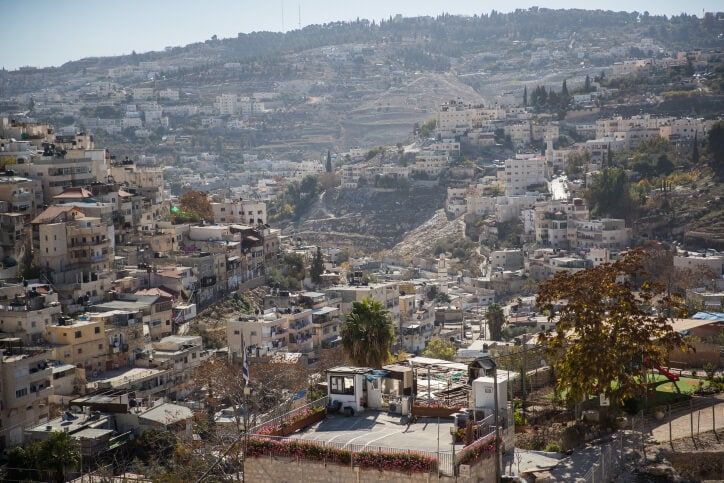An NPR piece entitled, “Israel Accused Of Revoking Thousands Of Jerusalem Residency Permits From Palestinians,” buried, and in some cases entirely left out, critical information.
The author, Daniel Estrin, has a history of responsible journalism with NPR, which makes this lapse unusual, but nonetheless worth examining.
“Burying” is when an article separates out critical information into a section where it is less likely to be read or understood in proper context. This is an example of Imbalanced Reporting, one of the eight categories of media bias.
To Estrin’s credit, he properly includes a response by Jerusalem’s mayor denying the claim in his headline.
However, there are many instances where the article departs from proper journalistic professionalism to tell a story that is at best misleading.
Join the fight for Israel’s fair coverage in the news
For example:
After Israel captured East Jerusalem, the Palestinians who lived in that territory did not receive Israeli citizenship, but rather the lesser status of permanent residency.
Only in the last sentence of the article do we see the truth: that Palestinians were, and still are, offered full Israeli citizenship.
This is critical context, so why is it separated and buried?
NPR did not mention at all that the reason many Palestinians decline Israel’s offers of citizenship is to perpetuate a view that Israel (all of Israel) is “the enemy.”
It [Israel] does not give Palestinian residents of Jerusalem the right to vote in national elections that Israeli citizens enjoy.
It is highly rare for any country in the world to give non-citizens the right to vote in national elections.
Yet Palestinians are entitled vote in Jerusalem’s municipal elections, and actually entitled to run for office – even without accepting Israel’s offer of citizenship.
Why is this not even mentioned?
Palestinians often refrain from running in Jerusalem elections: because Palestinian groups typically issue fatwas (death threats) against anyone who dares to do so. One example is Zohir Hamden, an Arab from the village of Sur Baher, who intended on running for mayor of Jerusalem in 2008 but withdrew his candidacy a month before the election due to pressure from Palestinian groups.
All of this is critical context is entirely missing from the article. Why?
Khulood Kawamleh, 31, finds herself stateless. She was born in the United Arab Emirates to a Palestinian father from Jerusalem…
People born in foreign countries to non-Israeli parents are not given automatic Israeli citizenship. That is a common, if not universal, practice among the nations of the world.
However as a Palestinian, shouldn’t Kawamleh be entitled to citizenship under the Palestinian Authority government? Did she even seek such citizenship? If so, was she denied?
We’ll never know, because it’s left out of the article.
And let’s not forget, the Kawamleh parents were presumably offered Israeli citizenship at some time in the past, but they apparently felt it more important to reject it out of protest, thus harming their own daughter.
Of course we don’t know for certain because, again, it’s left out of the article: even though the question is critical to this story.

Near the end, the article states:
Palestinians who wish to return to East Jerusalem are generally able to restore their residency status if they request it…
Earlier the article emphasized that Palestinians who leave Jerusalem lose their residency status, with no further context, implying that the loss is permanent. Only now, at the end, do we learn that the major premise of the article is…essentially untrue.
But it gets worse:
…amid a wave of Palestinian stabbings, shootings and car rammings, Israel has stripped residency rights from Palestinian residents of Jerusalem, and their families, if they were found to have carried out such attacks…
So here at the end we finally learn that at least some who lose their residency status are, in fact, killers. This seems not only relevant, but pretty dramatic context, worthy of inclusion in the appropriate paragraphs about Palestinians losing citizenship, rather than disconnected and buried at the end.
Once the relevant context is included and properly organized, the article would read something like this: those who decline citizenship are not citizens, residents who leave for years at a time are no longer residents, former residents who return can become residents again, etc. This hardly seems surprising or even newsworthy.
If there is a legitimate news story here, NPR should be able to communicate it without burying critical context and leaving out important facts.
NPR can, and must, be more professional.
Please share your considered comments with NPR by clicking THIS LINK and selecting “Contact the Ombudsman”
Photo of Silwan by Yonatan Sindel/Flash90


